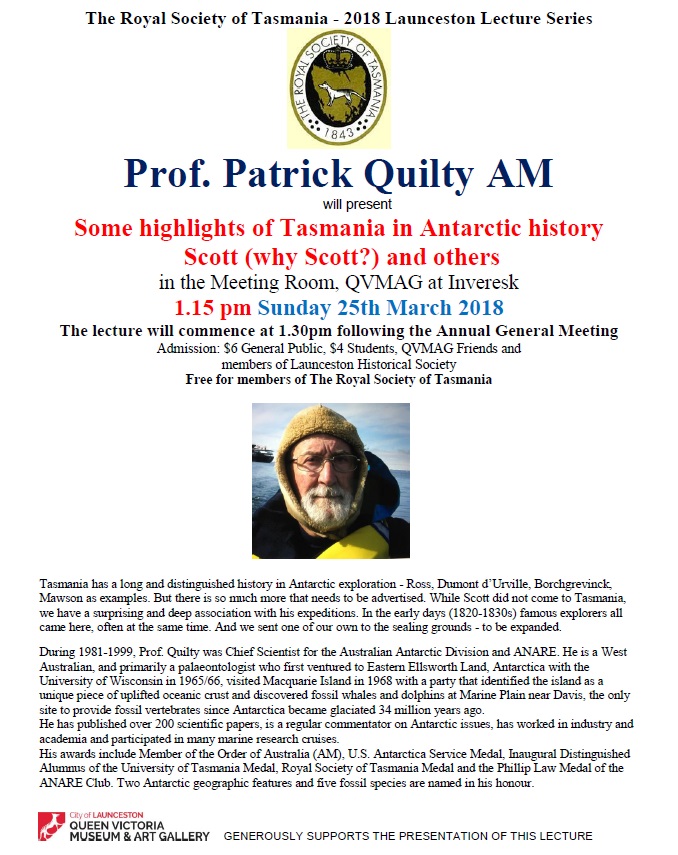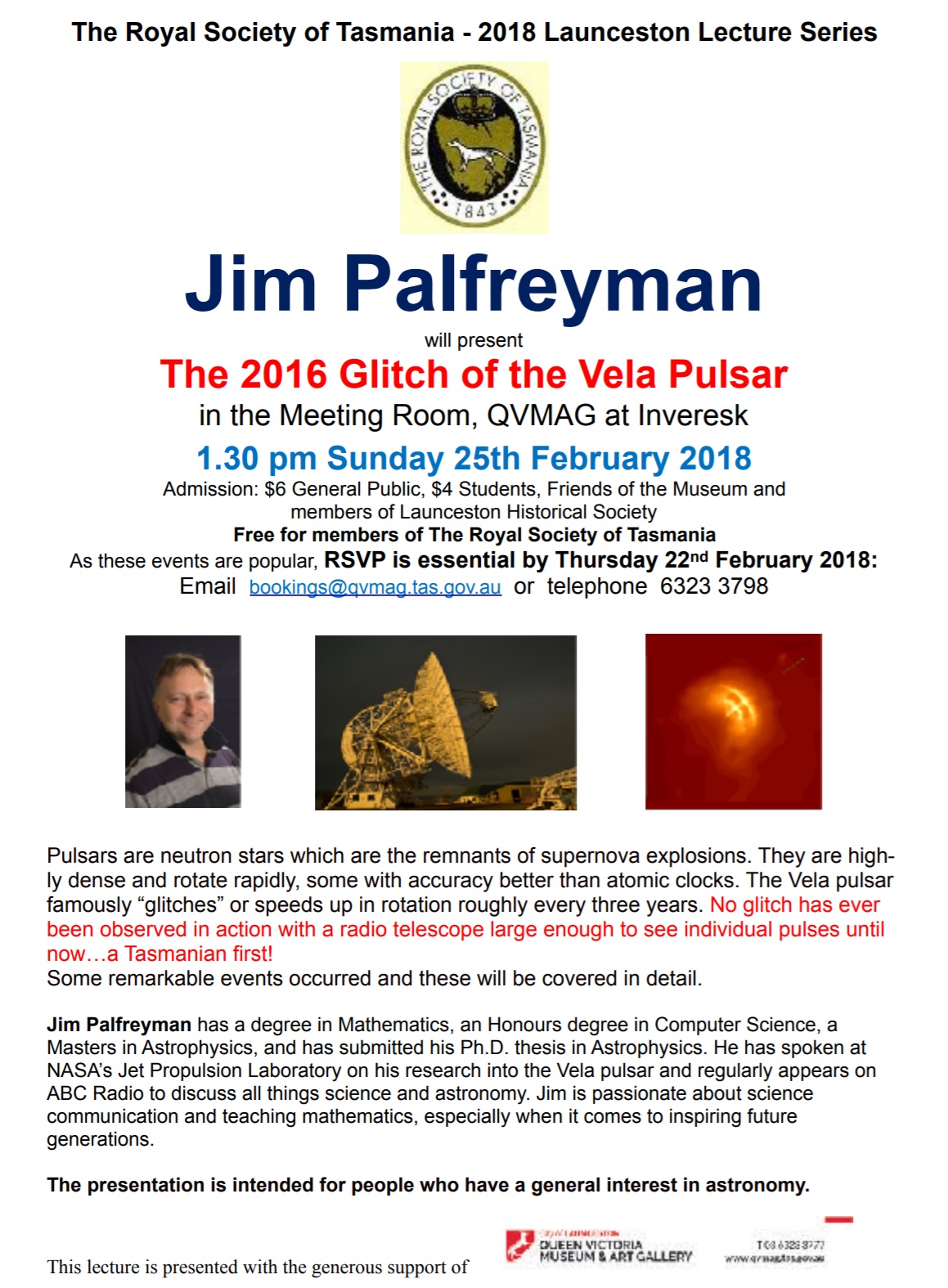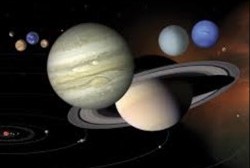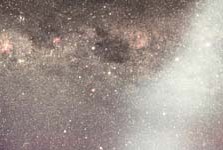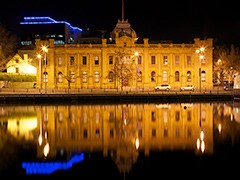Jim Palfreyman – The 2016 Glitch of the Vela Pulsar – Sun Feb 25 2018 @1.30 pm in the Meeting Room, QVMAG at Inveresk
Mr Martin George – Planet, Planets Everywhere: Our search for other Solar Systems – 1.30 pm Sun Nov 26, QVMAG Inveresk
Astronomers had long assumed that there were planets orbiting stars other than our Sun, but it is only since the 1990s that we obtained evidence that this was true. Now we know of thousands of these planets, making it clear to us that planetary systems are common. However, except in a few special cases, we have never seen any of them. The speaker will explain the various methods that are used to detect them and to discover a good deal of information about their orbits and characteristics.
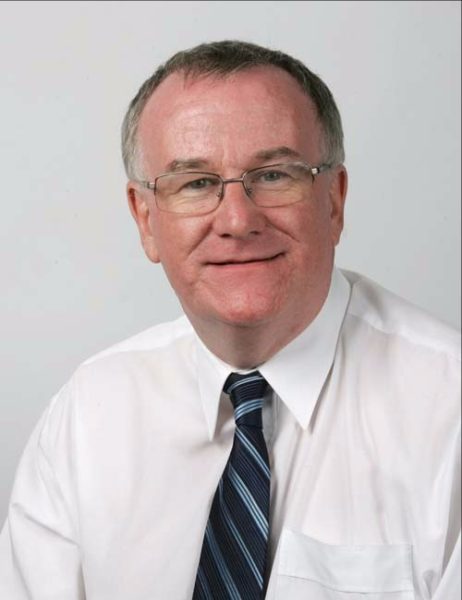 Martin George is Manager of the Launceston Planetarium at QVMAG. He is a well-known communicator of astronomy to the public, with several regular radio interviews and a weekly space article in The Mercury newspaper. He is also a contributing editor of the US magazine Astronomy.
Martin George is Manager of the Launceston Planetarium at QVMAG. He is a well-known communicator of astronomy to the public, with several regular radio interviews and a weekly space article in The Mercury newspaper. He is also a contributing editor of the US magazine Astronomy.
Martin is a fellow and former president of the International Planetarium Society and is its Chair of International Relations. He has been awarded the David Allen Prize for astronomy communication by the Astronomical Society of Australia, and the Winifred Curtis Medal for Science Communication in Tasmania.
Launceston Lecture Series
Meeting Room, QVMAG at Inveresk
RSVP by Thu Nov 23: bookings@qvmag.tas.gov.au
Small fee for non-members
1.30 pm Sun Nov 26
Dr Anita Hansen – 175 years of the Royal Society of Tasmania – Oct 22, 1.30 pm @Meeting Room, QVMAG Inveresk
On October 14 2018, The Royal Society of Tasmania will be celebrating 175 years. It is the third oldest Royal Society, with only the Royal Society and the Edinburgh Royal Society predating it. The lecture will examine the Society and its influence on the history and culture of Tasmania. There will also be a discussion of events planned to celebrate the anniversary.
Dr Anita Hansen has been an artist all her life, working in Tasmania, interstate and overseas. She holds a doctorate from the University of Tasmania, a Master of Fine Arts, a Graduate Diploma in Plant and Wildlife Illustration and a Bachelor of Fine Art degree. Anita co-edited The Royal Society of Tasmania’s book The Library at the End of the World: Natural Science and Its Illustrators and has published a number of journal articles, as well as curating exhibitions in Tasmania and interstate.
Dr Claire Hawkins – Extinction matters: could citizen science help? – Sep 24, 1.30 pm @Meeting Room, QVMAG Inveresk
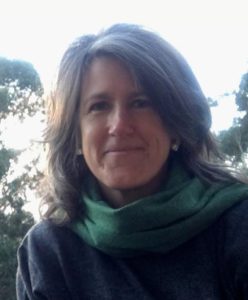 Twenty-seven species are listed as having gone extinct from Tasmania in recent times. Threatened Species Day (7 September) marks the date since the last known thylacine died, in 1936. It’s a time to reflect on why extinction matters to us, and how we might reduce our negative impacts on species survival. My own response, as a threatened species zoologist, has been to take up a Churchill Fellowship on citizen science, to engage the wider community in better understanding the needs of the plants and animals in their own backyards. In this talk, I share my findings on how this might work most effectively. Dr Clare Hawkins carried out her Ph.D. on the fossa (Cryptoprocta ferox), a semi-arboreal mammalian carnivore endemic to the forests of Madagascar. Its ecological similarities to the spotted-tailed quoll (Dasyurus maculatus) brought her to Tasmania in 2001 to study the latter species’ habitat requirements. She subsequently joined the State Government, initially with the Save the Tasmanian Devil Program, and spent four years monitoring the impact and distribution of Devil Facial Tumour Disease. She is currently the IUCN Australasian Marsupial and Monotreme Specialist Group Red List coordinator and author of the Naturetrackers blog. For the Bookend Trust, she co-organised two ‘Extinction Matters’ BioBlitzes in 2016, held on either side of Threatened Species Day, to be reprised this year in November. Her current focus is on novel approaches to better monitor and manage Tasmania’s diverse threatened fauna (from quolls and eagles to skinks, butterflies and burrowing crayfish). In 2015, she was awarded a Gallaugher Bequest Churchill Fellowship to develop citizen science study designs for long term monitoring.
Twenty-seven species are listed as having gone extinct from Tasmania in recent times. Threatened Species Day (7 September) marks the date since the last known thylacine died, in 1936. It’s a time to reflect on why extinction matters to us, and how we might reduce our negative impacts on species survival. My own response, as a threatened species zoologist, has been to take up a Churchill Fellowship on citizen science, to engage the wider community in better understanding the needs of the plants and animals in their own backyards. In this talk, I share my findings on how this might work most effectively. Dr Clare Hawkins carried out her Ph.D. on the fossa (Cryptoprocta ferox), a semi-arboreal mammalian carnivore endemic to the forests of Madagascar. Its ecological similarities to the spotted-tailed quoll (Dasyurus maculatus) brought her to Tasmania in 2001 to study the latter species’ habitat requirements. She subsequently joined the State Government, initially with the Save the Tasmanian Devil Program, and spent four years monitoring the impact and distribution of Devil Facial Tumour Disease. She is currently the IUCN Australasian Marsupial and Monotreme Specialist Group Red List coordinator and author of the Naturetrackers blog. For the Bookend Trust, she co-organised two ‘Extinction Matters’ BioBlitzes in 2016, held on either side of Threatened Species Day, to be reprised this year in November. Her current focus is on novel approaches to better monitor and manage Tasmania’s diverse threatened fauna (from quolls and eagles to skinks, butterflies and burrowing crayfish). In 2015, she was awarded a Gallaugher Bequest Churchill Fellowship to develop citizen science study designs for long term monitoring.
Launceston Lecture Series – Dr Mark Dewsbury – Sustainable Housing: Challenges facing zero energy homes in southern Australia, 1.15 pm Sun Aug 27
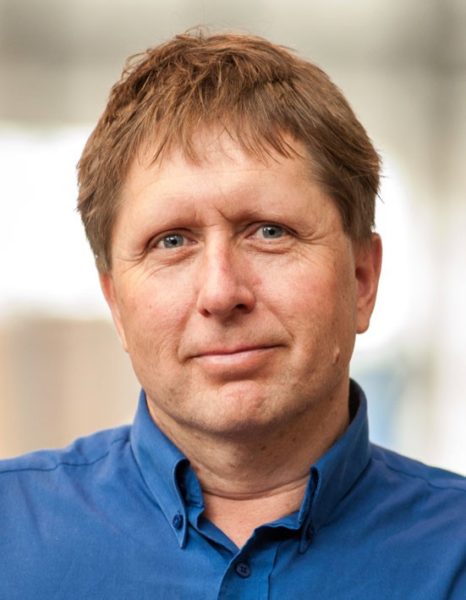 What is a zero energy home? In the current national and global building materials supply
What is a zero energy home? In the current national and global building materials supply
chain, are we considering carbon emissions adequately? And what about water? In this presentation Mark will discuss aspects of envelope design, thermal mass and airtightness that must be considered on the pathway to zero. How should we be making our homes such that they require minimal energy for heating or cooling, provide adequate indoor air quality and passively minimise the occurrence of condensation and mould?
Mark is passionate about sustainability and has been involved in the sustainable design of commercial and residential buildings for more than 20 years. His research collaborations have included industry, state government, federal government and CSIRO. His research focuses on methods of building to improve the thermal performance of Australian buildings and has incorporated empirical validation, testing and calibration building simulation programs. Most recently, his research has included the use of timber as thermal mass and condensation risks in contemporary building systems.
Before Dr Dewsbury’s lecture Zac Corbett will report on his attendance at The 2017 London International Youth Science Forum.
Zac is a year 12 student at St. Brendan-Shaw College, Devonport where he is studying Chemistry, Biology, Computer Science and Mathematics Methods. He hopes to study at a tertiary level in the STEM field specializing in Chemistry, and one day to work researching and developing more sustainable, environmentally friendly fuels which will help us to eliminate emissions from our vehicles. 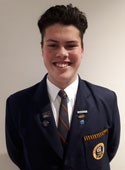
Meeting Room, QVMAG at Inveresk
RSVP by Thu Aug 24: bookings@qvmag.tas.gov.au Small fee for non-members
Launceston Lecture Series – Sarah Lloyd – Acellullar Slime Moulds – the most remarkable organisms, 1.30 pm Sun Jul 23
 A study of slime moulds (myxomycetes) in Northern Tasmania has found over 10% of the world’s known species including at least one that is new to science.
A study of slime moulds (myxomycetes) in Northern Tasmania has found over 10% of the world’s known species including at least one that is new to science.
Slime moulds are ephemeral, unpredictable and intriguing. Their life cycle includes two mobile feeding stages that creep and flow through soil and decaying vegetation devouring bacteria, algae and fungi; and an exquisitely beautiful spore-bearing stage that rarely exceeds 2 mm high. During a seven-year study of acellular slime moulds in the forest surrounding her home, Sarah has amassed more than 1400 collections representing over 10% of the world’s known species including at least one – Alwisia lloydiae – that is new to science.
Sarah Lloyd is a prominent Tasmanian naturalist, writer and photographer whose passion for natural history began in early childhood with a love of birds. Since moving to the wet eucalypt forest at Black Sugarloaf near Birralee in 1988 she has contributed to various bird and fungi monitoring projects and written several popular books on natural history, most recently “The Feathered Tribes of Van Diemen’s Land.” Since 2010 Sarah has been studying acellular slime moulds.
Meeting Room, QVMAG at Inveresk
RSVP by Thu Jul 20: bookings@qvmag.tas.gov.au Small fee for non-members

Launceston Lecture Series – Prof Matt King – Continental Loss: The Quest for Antarctica’s Contribution to Sea Level Rise, 1.30 pm Sun Jun 25
 For over 50 years scientists have been working to understand Antarctica’s contribution to sea level. For much of this time there has been disagreement about if this massive ice sheet is even growing or shrinking. In 2012, advances in data analysis and computer modelling resulted in the first reconciled estimate of change being achieved. This lecture will explain some of the major advances that led to this reconciled estimate, which revealed that Antarctica is increasingly contributing to sea-level rise.
For over 50 years scientists have been working to understand Antarctica’s contribution to sea level. For much of this time there has been disagreement about if this massive ice sheet is even growing or shrinking. In 2012, advances in data analysis and computer modelling resulted in the first reconciled estimate of change being achieved. This lecture will explain some of the major advances that led to this reconciled estimate, which revealed that Antarctica is increasingly contributing to sea-level rise.
Professor Matt King started focusing on Antarctica during his PhD at the University of Tasmania, where he quantified multi-decadal changes in the motion of a large floating Antarctic ice shelf using surveying data. After 11 years in north-east England, he returned to the University of Tasmania in 2012 as Australian Research Council Future Fellow and Professor of Polar Geodesy. In April 2015 the Royal Society (London) awarded him the Kavli Medal and Lecture for his work that contributed to the first reconciled estimate of Antarctica and Greenland’s contribution to sea-level change. He is currently President of The Royal Society of Tasmania.
Meeting Room, QVMAG at Inveresk
RSVP by Thu Jun 22: bookings@qvmag.tas.gov.au Small fee for non-members

Ephemeral Lisle: The Town that Disappeared – Mr Nigel Burch QVMAG Meeting Room 1.30 pm Sunday 28th May 2017
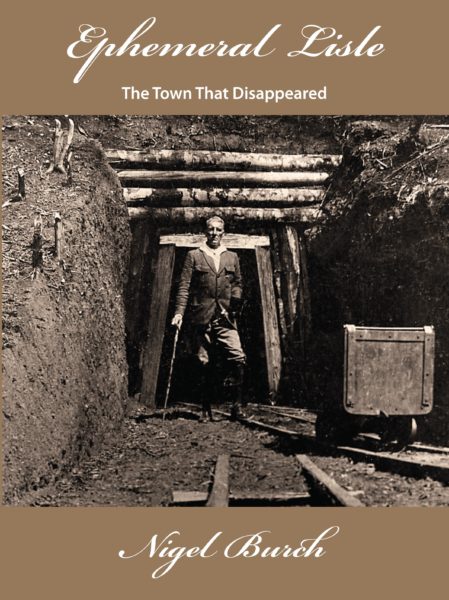 The Lisle rush of 1879 was the biggest gold rush ever seen in Tasmania. At the height of the boom Lisle was easily our third largest town. The alluvial gold was soon exhausted, however, and no reef was ever found. When small miners blocked the release of land to farmers, the town was doomed. We look at the history of the people and town, from the first prospector’s arrival in 1878, to when the last resident left in 1963.
The Lisle rush of 1879 was the biggest gold rush ever seen in Tasmania. At the height of the boom Lisle was easily our third largest town. The alluvial gold was soon exhausted, however, and no reef was ever found. When small miners blocked the release of land to farmers, the town was doomed. We look at the history of the people and town, from the first prospector’s arrival in 1878, to when the last resident left in 1963.
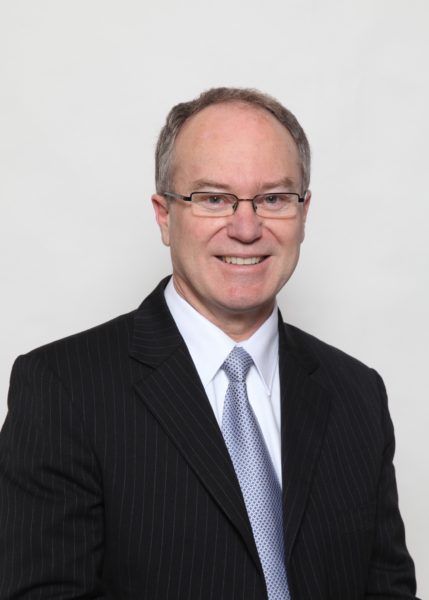
Mr Nigel Burch, through a varied career, has always returned to his childhood love of mining. From trading mining shares in High School, to working as a gold and diamond dealer, to consulting on mining companies to Arthur Andersen, then the largest accountancy firm in the world. He has been a director of many listed and unlisted gold mining companies and was an adviser to the Bosnian Government on post-war reconstruction of their steel industry. In retirement, he has set out to document the astonishing and largely forgotten history of mining around the Tamar.
Admission: $6 General Public, $4 Friends of the Museum and Students
Free for members of The Royal Society of Tasmania
As these events are popular, RSVP is essential by Thursday 23rd February 2017:
Email bookings@qvmag.tas.gov.au or telephone 6323 3798
“Get it Right. Trousers First Then Boots!” – What is Military Intelligence? Dr Nicholas Chantler QVMAG Meeting Room 1.30 pm Sunday 23 April 2017
“I’ve been asked to tell you what I’m going to talk about….and I guess you’ll know that after I’ve told you…well, I will have to shred you…feet-first into the shredder…it’s ok till you get to the lumpy bits, then it makes your eyes water…but since I have a bright light shining on me, I’ll tell you a little of what I’m going to talk about…. ok ok…..and by the way, real intelligence work is nothing like what I’ve just described….or relates to the photo! Ha!” This presentation includes the following topics and more: what intelligence is (Intelligence defined); the history of intelligence; intelligence organisations; how to become an intelligence officer and the selection process; the scope of intelligence; James Bond by Ian Fleming also Biggles by Captain W.E. Johns; scenarios to cause mayhem; and, “What really happened?”.
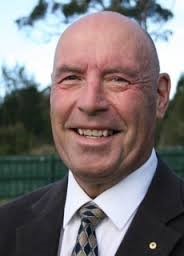
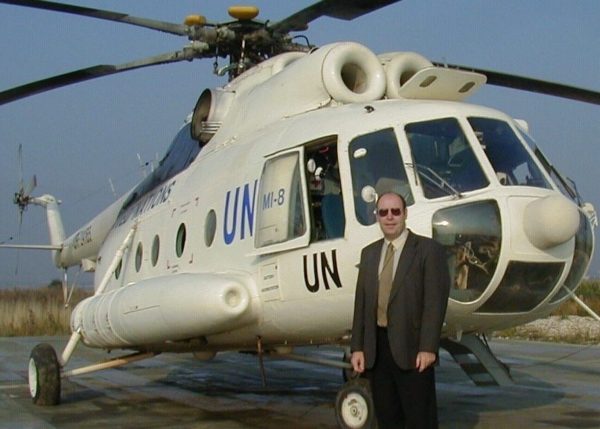
Dr Nicholas Chantler joined the Australian Regular Army in February 1981 as a Direct Entry Officer, into the Royal Australian Army Education Corps. His first posting was as a Physics Instructor at Army Apprentices School. He transferred to the Royal Australian Corps of Signals in 1985; then, after completing the three-month intelligence selection course, he became a Counterintelligence Officer in the Australian Intelligence Corps in 1987. Nicholas holds a doctorate on Computer Hackers and Criminal Psychology. He is a qualified teacher and clinical psychologist, specialising in clinical hypnosis. Nicholas was recognised for his work in 2010, being made a Member of The Order of Australia. He retired officially from the military in 2015, some 34 years since he enlisted in 1981.
Admission: $6 General Public, $4 Friends of the Museum and Students
Free for members of The Royal Society of Tasmania
As these events are popular, RSVP is essential by Thursday 23rd February 2017:
Email bookings@qvmag.tas.gov.au or telephone 6323 3798

